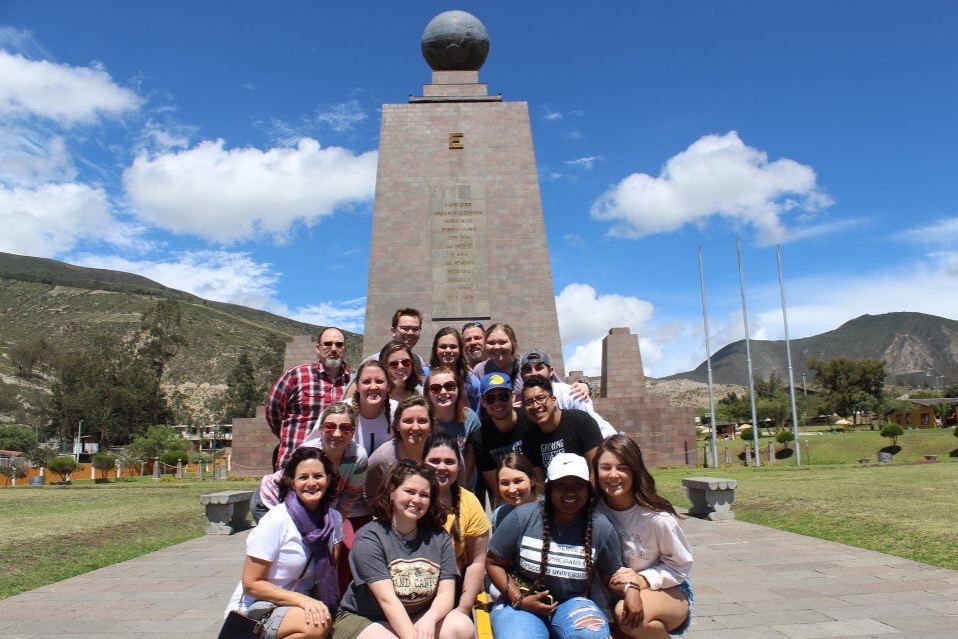Junior Savannah Rolston searches for words to describe her disappointment when the COVID-19 pandemic led to the cancellation of Lipscomb mission trips, including her own anticipated return to Equador.
“Disappointed is not a strong enough word. I was devastated. All this time and energy our team has invested into this trip and these kids over there, for it to be gone just like that,” said Rolston.
She said she was looking forward to returning to Ecuador during her second year with Lipscomb missions to serve a local children’s home, Hacienda of Hope.
Now, like many other Lipscomb students, she is met with the fact that her mission work has been halted indefinitely.
“At first, I was in shock. There’s no way they can just cancel our trip like this,” says Rolston. “But then borders were closing, countries were being locked down, big events were being canceled and I realized it was for the best that they just called it off.”
In early March, Lipscomb’s missions and the Office of the President canceled all school-sponsored and non-essential travel due to the spread of the coronavirus. These restrictions ended more than eight international mission trips that were scheduled for spring break, including travel to Japan, Honduras, and El Salvador.
The university noted its decision to cancel was based on guidelines provided by the CDC. Out of an abundance of caution, the university asked that anyone arriving from countries on the CDC’s Level 2 and 3 health warning lists or from a country that restricts travel, must self-quarantine.
“On campus, we are working on a continuous basis to proactively anticipate whatever might develop and be particularly focused on protecting members of the Lipscomb community and continuing the education of our students,” said President Randolph L. Lowry in an email to all Lipscomb University students.
“Per university policy and until further notice, any student or employee who independently visits a location that meets any of these criteria or who travels via a cruise to any location is restricted from campus for a 14-day isolation period,” the email read.
But what did these cancellations mean for students and their hopes of traveling abroad? In many discipline-specific teams like engineering and nursing, international trips are opportunities to practice skills beyond the classroom.
For some, this was their first chance to travel internationally. For others, it was a chance to reconnect with communities they’ve served year after year.
“They say the second year back is when you really deepen the connection, so it’s hard to describe the feeling to know that I’m losing out on that,” says Rolston.
“Ecuador is my favorite place in the world. I was so excited to see the kids again, especially the girls. I’m just hurt that I won’t get to hear their stories and see how far they’ve come with their faith.”
In recent weeks, the Lipscomb University missions department has been faced with the task of reimbursing student payments for hotel, flights and other accommodations.
Some trips were scheduled to leave only 10 days after the announcement was made, causing many students to find alternative last-minute spring break plans. Of course, spring break became just a prelude to closing the campus for the semester due to the virus.
Lipscomb University’s mission director, Tyler Kemmerer, has urged students to be patient.
“This comes as a huge disappointment with tough consequences, and we did not make this decision lightly. We will work with you individually as it relates to scholarships and status,” wrote Kemmerer.
“Possibilities for the future are being considered and will be communicated when we have a plan.”
Students realize that the decision will ultimately fall to the companies and airlines that were holding the funds for these trips. But, as the COVID-19 outbreak continues to affect communities around the globe, it’s unknown if the pandemic will ease in enough time to allow these trips to be rescheduled in the fall.
And many science and medical experts have commented on news programs that even if the virus drops off later in the summer, it is likely to return, in some fashion, in the fall.
Lipscomb plans to continue consulting the advice of the CDC and other reputable organizations.

